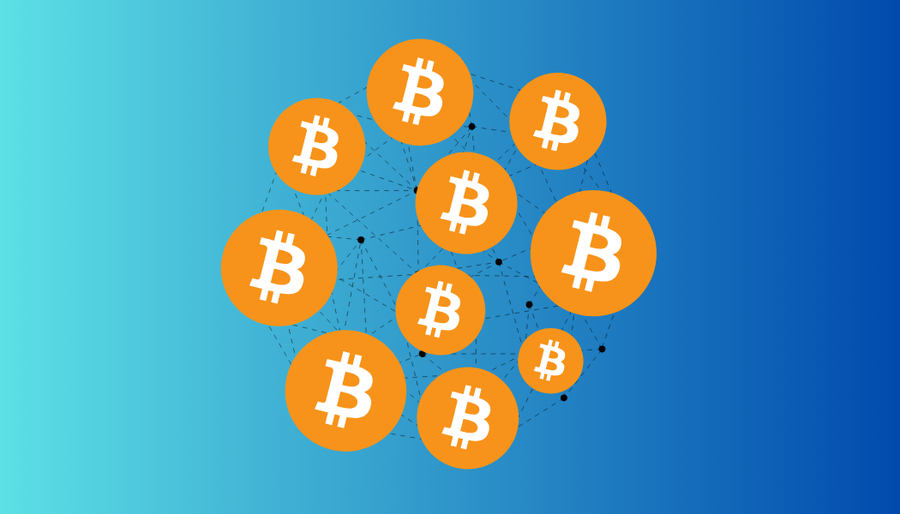Bitcoin Nodes: A Beginner’s Guide to Decentralized Network Security
Unlock the secrets of Bitcoin nodes and learn how they contribute to the decentralized network security. Dive into our beginner's guide now!

So, you’re curious about Bitcoin and the mysterious world of cryptocurrency? Well, you’ve come to the right place. Today, we’re diving deep into the heart of the Bitcoin network to unravel the enigma of Bitcoin nodes. Strap in, because we’re about to embark on a journey through the digital wilderness where decentralized currency reigns supreme.
Explaining Bitcoin Nodes
Let’s kick things off by debunking a common misconception about Bitcoin. Unlike traditional currencies that rely on central authorities like banks or governments, Bitcoin operates on a decentralized network. There’s no bigwig in charge, pulling the strings behind the scenes. Instead, transactions are validated and recorded by a network of computers known as nodes.
What Exactly is a Bitcoin Node?
Picture a vast digital spider web, with each node representing a node on this intricate network. These nodes come in all shapes and sizes, from powerful servers to humble Raspberry Pi computers humming away in someone’s basement. Their job? To keep the Bitcoin network running smoothly by validating transactions and maintaining a copy of the blockchain—the ledger containing every Bitcoin transaction ever made.
The Role of Nodes in the Bitcoin Network
You might be wondering, what’s the big deal about nodes? Well, let me tell you—they’re the unsung heroes of the Bitcoin universe. Here’s a rundown of their key functions:
- Transaction Verification: Nodes verify the validity of transactions, ensuring that coins aren’t double-spent and that the rules of the network are followed.
- Historical Data Storage: Every node stores a complete copy of the blockchain, allowing new participants to join the network and validate transactions without relying on centralized authorities.
- Network Security: By participating in the mining process, nodes help secure the network against malicious attacks and ensure the integrity of the blockchain.
Setting Up Your Own Bitcoin Node
Feeling adventurous? Want to join the ranks of Bitcoin node operators? Well, you’re in luck because setting up your own node is easier than you might think. Here’s a quick guide to get you started:
Step 1: Choose Your Hardware
First things first, you’ll need to select the hardware for your node. While some enthusiasts opt for high-powered servers, others prefer more affordable options like Raspberry Pi or even old laptops gathering dust in the attic.
Step 2: Download the Bitcoin Software
Next, you’ll need to download and install the Bitcoin software on your chosen hardware. Don’t worry—it’s free and open-source, so you won’t have to break the bank to get started.
Step 3: Syncing with the Network
Once the software is up and running, your node will begin syncing with the Bitcoin network, downloading historical data dating back to the very first block, known as the Genesis Block. Depending on your internet connection, this process can take some time, so be patient.
Step 4: Verify and Validate
Once synced, your node will verify transactions and ensure that all network rules are being followed. Congratulations, you’re now part of the decentralized backbone that powers the world of Bitcoin!
And there you have it, guys—a crash course in the fascinating world of Bitcoin nodes. From their vital role in transaction verification to the nuts and bolts of setting up your own node, we’ve covered it all. So what are you waiting for? Dive in, explore, and join the ranks of Bitcoin pioneers shaping the future of finance—one node at a time.
Performance VPN1411
Hey there! If you’re experiencing performance issues with your VPN, there could be a few factors at play. First off, make sure you’re using a reliable VPN service like ForestVPN, known for its blazing-fast speeds and top-notch security features.
Next, check your internet connection to ensure it’s stable and running smoothly. Sometimes, sluggish performance can be attributed to network congestion or bandwidth limitations.
If you’re still encountering issues, try connecting to different server locations within the ForestVPN network. Opting for a server closer to your physical location can often improve speeds and overall performance.
And don’t forget to update your VPN client regularly to access the latest optimizations and bug fixes. Still not satisfied? Our friendly support team is here to help troubleshoot any lingering issues and ensure you get the most out of your VPN experience.
Ready to supercharge your online security and browsing speeds? Check out ForestVPN today at Forestvpn.com and experience the difference for yourself!
FAQs
Can anyone run a Bitcoin node?
Absolutely! The beauty of Bitcoin is its decentralized nature, allowing anyone to run a node without needing permission or special authorization.
Do I need special hardware to run a node?
Not necessarily. While some choose to use powerful servers, others have successfully run nodes on low-cost hardware like Raspberry Pi.
How do nodes contribute to network security?
By participating in the mining process and validating transactions, nodes help secure the network against malicious attacks and ensure the integrity of the blockchain.
Can I run a Bitcoin node anonymously?
Yes, it’s possible to run a Bitcoin node anonymously through the Tor network, providing an extra layer of privacy and security.
Why is running a node important for the Bitcoin ecosystem?
Running a node helps decentralize the network, ensuring that no single entity has control over Bitcoin. It also promotes transparency and trust by allowing users to verify transactions independently.
